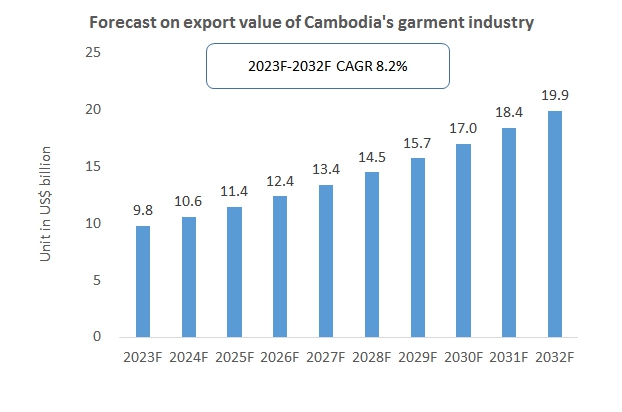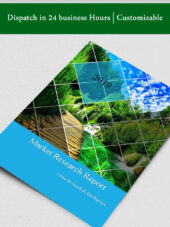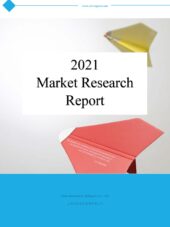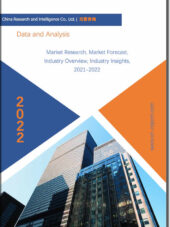Description
Cambodia Garment Manufacturing Industry
Cambodia has made substantial socio-economic progress over the past two decades, achieving a real GDP growth rate of 5.1% in 2022. The nation boasts a plentiful labor force with low labor costs. As of the end of 2022, Cambodia’s population was estimated at 17.2 million people, with approximately 75% residing in rural areas. A significant portion of the population, around 27%, falls within the age group of 10 to 24 years old, while over 30% of Cambodians are under the age of 30, making Cambodia one of the youngest countries in Southeast Asia. The youth-oriented demographic structure is anticipated to drive growth in the Cambodian consumer market for the next 10 to 15 years.
The textile and garment sector in Cambodia has witnessed remarkable growth in its export market since the 1990s. This dynamism is largely attributed to Cambodia’s strong comparative advantage in the sector. Despite rising wages, Cambodia remains competitive in terms of labor costs, which has contributed to the sector’s vitality.
The garment industry holds a pivotal position in Cambodia’s economy, serving as the largest export earner, responsible for over 40% of the country’s total merchandise exports. Moreover, it constitutes a significant component of Cambodia’s GDP. The industry’s export volume has consistently expanded over the years, with garment manufacturing firms emerging as major non-agricultural employers, providing jobs for more than 750,000 workers across over 600 factories.
Most of the garment firms in Cambodia are foreign-owned, underlining the sector’s appeal to Foreign Direct Investment (FDI). Chinese-owned factories represent the majority, comprising approximately 90%, while some European companies, such as those from the Netherlands, have also invested in Cambodia. Notably, Cambodia’s garment exports are primarily directed toward Western countries, with the European Union (EU) being the largest market, followed by the United States.
The garment industry in Cambodia employs a workforce exceeding 750,000 individuals, with a majority being women, and contributes to more than a third of the country’s Gross Domestic Product (GDP). The sector continues to be Cambodia’s leading export sector, with garment exports surpassing $9 billion in 2022. Nevertheless, the industry faces challenges in terms of high energy costs and low productivity, affecting its competitiveness within the region.
The International Finance Corporation’s (IFC) Cambodia Improvement Program (CIP), initiated in 2019 with support from the Ministry of Economy and Finance of Korea, seeks to enhance the competitiveness, productivity, and sustainable growth of the garment sector. This program aligns with Cambodia’s national goal of reducing greenhouse gas emissions by 40% by 2030. As part of the CIP, 10 suppliers in the tailoring and garment washing business implemented resource efficiency measures in 2019 and 2020, achieving significant savings in energy and water consumption. These measures boosted productivity while contributing to the country’s climate objectives.
From 2018 to 2022, Cambodia’s apparel and clothing sector experienced fluctuating growth in total export value, with a Compound Annual Growth Rate (CAGR) of 3.01% during that period. In 2020, the COVID-19 pandemic impacted Cambodia’s apparel manufacturing industry, leading to a year-on-year decrease of 10.63% in the sector’s total export value, amounting to $7,387 million. In 2021, the Cambodian government eased control measures, facilitating a rapid recovery in the export of Cambodia’s garment and apparel sector. Consequently, the total export value reached $8.018 billion in 2021 and $9.035 billion in 2022, reflecting year-on-year growth rates of 8.53% and 12.69%, respectively.
The global garment market is substantial and exhibits a consistent upward trajectory. Capitalizing on the shift of the global textile and garment industry to Southeast Asia, Cambodia’s textile and garment sector has experienced rapid development, bolstered by the support and promotion of the Cambodian government. As per CRI’s analysis, the export value of Cambodia’s garment industry is projected to reach $19.9 billion in 2032, exhibiting a Compound Annual Growth Rate (CAGR) of 8.2% from 2023 to 2032.
Topics covered:
- Overview of the Cambodian Garment Industry
- Economic and policy environment of Cambodia’s garment industry
- What is the impact of COVID-19 on the Cambodian garment industry?
- Cambodia Clothing Industry Market Size 2018-2022
- Analysis of major Cambodian garment enterprises
- Key Drivers and Market Opportunities in Cambodia’s Garment Industry
- What are the key drivers, challenges and opportunities for the Cambodian apparel industry during the forecast period 2023-2032?
- Which are the key players in the Cambodia Garment Industry market and what are their competitive advantages?
- What is the expected revenue of Cambodia Garment Industry market during the forecast period of 2023-2032?
- What strategies have been adopted by the key players in the market to increase their market share in the industry?
- Which segment of the Cambodia Garment Industry market is expected to dominate the market by 2032?
- What are the main unfavorable factors facing the garment industry in Cambodia?
Related Reports:
- Thailand Garment Manufacturing Industry Research Report 2023-2032
- Indonesia Garment Manufacturing Industry Research Report, 2023-2032
- Research Report on Southeast Asia Garment Manufacturing Industry 2023-2032
Table of Contents
1 Overview of the Development of the Garment Industry in Cambodia
1.1 Definitions and Classifications
1.2 Analysis of Major Products
1.3 Impact of COVID-19 on the Cambodian Clothing Manufacturing Industry
2 Analysis on Garment Manufacturing Industry in Cambodia, 2018-2022
2.1 Development Environment of the Cambodian Garment Industry
2.1.1 Economic Environment
2.1.2 Policy Environment
2.1.3 Social Environment
2.2 2018-2022 Cambodia Clothing Supply Analysis
2.2.1 Analysis of Major Foreign Investment Sources in Cambodia’s Garment Manufacturing Industry
2.2.2 Clothing Production
2.3 Demand Analysis of Apparel in the Cambodian Market
2.3.1 Major Consumer Groups of Clothing
2.3.2 Size of the Cambodian Domestic Clothing Market
3 Import and Export Analysis of Cambodian Textile and Garment Industry
3.1 Imports
3.1.1 Import of Raw Materials
3.1.2 Main Sources of Imports
3.2 Exports
3.2.1 Export Analysis of Cambodia’s Garment Industry
3.2.2 Main Export Destinations
4 Competition Status of Garment Manufacturing Industry in Cambodia
4.1 Barriers to Entry in the Cambodian Clothing Industry
4.1.1 Government Policies
4.1.2 Sales Channels
4.1.3 Brand Barriers
4.2 Competitive Structure of Cambodian Garment Manufacturing Industry
4.2.1 Bargaining Power of Raw Material Suppliers
4.2.2 Bargaining Power of Consumers
4.2.3 Competition Within the Apparel Industry
4.2.4 Potential Entrants
4.2.5 Alternatives
5 Analysis on Cost and Price in Garment Manufacturing Industry in Cambodia
5.1 Manufacturing Cost Analysis of Cambodian Garment 2018-2022
5.1.1 Cost of Raw Materials
5.1.2 Analysis of Labor Cost in Cambodian Garment Manufacturing Industry
5.2 Price Analysis of Cambodian Clothing
6 Overview of Major Garment Manufacturing Companies in Cambodia
6.1 Samaritan Textile Cambodia
6.1.1 Business Profile
6.1.2 Main Products
6.1.3 Modes of Operation
6.2 Fairsew
6.2.1 Business Profile
6.2.2 Main Products
6.2.3 Modes of Operation
6.3 Craigwood
6.3.1 Business Profile
6.3.2 Main Products
6.3.3 Modes of Operation
6.4 Quantum
6.4.1 Business Profile
6.4.2 Main Products
6.4.3 Modes of Operation
6.5 Morijana
6.5.1 Business Profile
6.5.2 Main Products
6.5.3 Modes of Operation
6.6 Dewhirst
7 Outlook for Garment Manufacturing in Cambodia, 2023-2032
7.1 Factors Influencing the Development of the Garment Manufacturing Industry in Cambodia
7.1.1 Drivers and Market Opportunities in Cambodia Clothing Manufacturing Industry
7.1.2 Threats and Challenges Facing the Garment Manufacturing Industry in Cambodia
7.1.3 Industry Prospects and Market Opportunities
7.2 Competitive Landscape Forecast for Cambodia Clothing Manufacturing Industry
7.3 Supply Forecast of Garment Manufacturing in Cambodia, 2023-2032
7.3.1 Raw Material Import Forecast for Garment Manufacturing in Cambodia, 2023-2032
7.3.2 Cambodia Garment Export Forecast 2023-2032
7.4 Market Demand Forecast for Garment Manufacturing in Cambodia, 2023-2032
7.4.1 Overall Market Demand Forecast for Garment Manufacturing in Cambodia, 2023-2032
7.4.2 Demand Forecast for Cambodian Clothing Manufacturing Segment, 2023-2032
List of Charts
Chart Classification of Garment Manufacturing
Chart Apparel Manufacturing Industry Chain Analysis
Chart Apparel Manufacturing Raw Materials Source Analysis
Chart Cambodian Textile and Clothing Exports 2018-2022
Chart Product Sales Revenue of Textile Industry in Cambodia 2018-2022
Chart 2018-2022 Textile Fiber Production in Cambodia
Chart 2018-2022 Apparent Consumption Analysis of Garment Manufacturing in Cambodia
Chart Samaritan Textile Cambodia Basic Information
Chart Fairsew Basic Information
Chart Craigwood Basic Information
Chart Quantum Basic Information
Chart Morijana Basic Information
Chart 2023-2032 Cambodia Cotton Import Forecasts
Chart 2023-2032 Forecast of Cambodian Garment Exports






Reviews
There are no reviews yet.